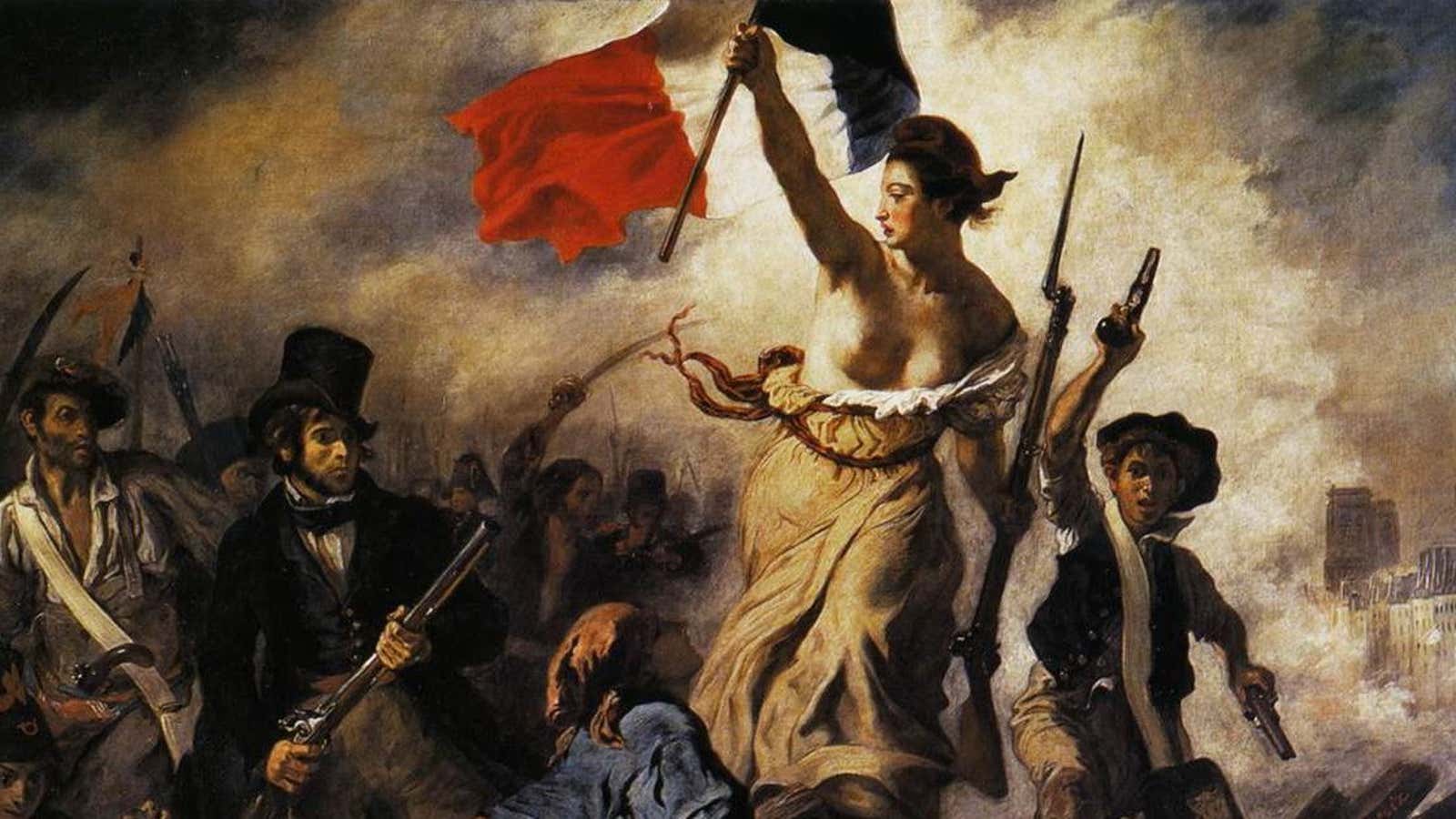For millions of people, ideology is the lighthouse in a dark sea of politics. An uncompromising vision of how the world is supposed to work, and how to fix it, is just too alluring for partisans to ignore. Political parties’ most frenzied supporters are demanding ideological purity from their candidates as they push out moderates, especially on the right. As a result, ever fewer temperate souls are left to hold the middle ground in politics.
Yet the libertarian think tank Niskanen Center in Washington, DC, argues the moderate middle is the future. Niskanen president Jerry Taylor wrote in an Oct. 29 essay that he is dropping the libertarian banner the center has shared with the likes of the more conservative Cato Institute. In a 3,595-word farewell to the libertarian world, he says libertarianism, and ideology itself, is a dead end. “I have abandoned that libertarian project…because I have come to abandon ideology,” writes Taylor, who invites readers to flee the “clean and well-lit prison of one idea.”
The future of American politics, he argues, is principled compromise, even if the present couldn’t seem further away. ”I think we’re living in a world in which moderation has virtually disappeared,” he says in an interview with Quartz. “And how’s that working out? I’m skating to where the puck is going to be.”
Trump’s authoritarian takeover of the Republican Party was Taylor’s breaking point (“I would have thought libertarians would have been on the ramparts, and they are not,” he said), but his disillusionment began years ago after working as a paid climate skeptic for the Cato Institute. He eventually came to see opposing action on climate change as both scientifically misguided, and wrong. After failing to get his libertarian colleagues to even engage with the argument, he slowly began to see how ideological fervor had engulfed a range of political issues, no matter what evidence pointed to the contrary.
Taylor argues Americans need to give up on perfection in politics, the logical endpoint of which is fanaticism. As the head of a think tank aimed at lawmakers, not the US public, Taylor’s move is a politically opportunistic bet as much as a principled stand in defense of a pluralistic society. (We’ll find out whether it was a good one after the midterm elections next week. Taylor is predicting a GOP electoral wipeout of “biblical proportions.”)
Where does Niskanen’s defection leave libertarians and its disillusioned disciples? Few are likely to find a home in today’s Democratic or Republican party. The libertarian vision of “night-watchman state” with a society dominated by the market is as distant a dream as ever. But a few libertarian causes have flourished in national politics of late.
From legalizing marijuana to deregulating telecom to striking down sodomy laws, libertarian policy wins have come after being co-opted by the major political parties (and even by winning a few local elections). Taylor’s rejection of the libertarian label may be a gift to his (former) fellow travelers. Libertarians’ greatest impact may be felt most when they aren’t espousing an ideology at all.
